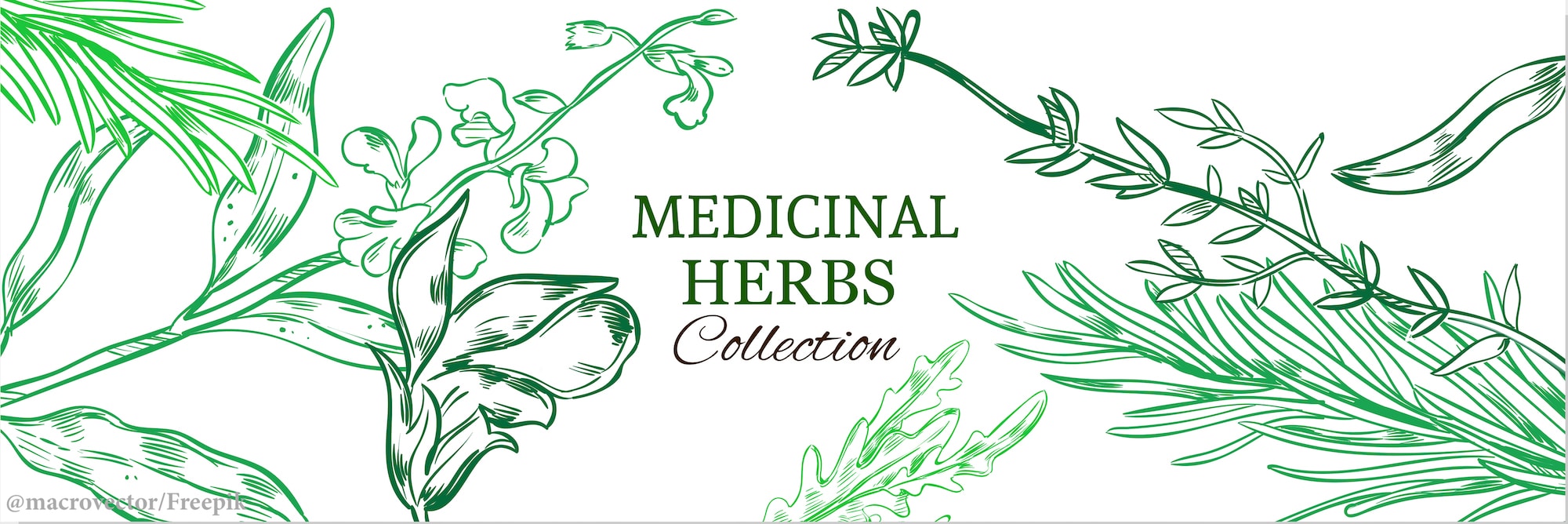There are a few challenges when we discuss herbs. It’s creditability and utilization. So, let us get these two challenges resolved first and talk about herbs.
Question 1: Do herbs work?
Yes, it does and you have been using it already. For example, bark from the willow tree is rich in salicin. Humanity had been using it for millions of years to ease headaches, fever, and many illnesses. When we extract salicin from the bark and compress it, then it becomes Aspirin.
The majority of modern drugs were made similarly. Breakdown the plants’ chemical composition, figure out which components from the plant work like an active ingredient for a specific illness. Then, we artificially recreate it in the lab. When we change the name of the plant in the fancy Latin words, it becomes expensive medicine.
Question 2: Herbs are growing all over my backyard, how do I use them?
Yes, it is confusing. Since it is confusing there are Medical schools focuses on Herbal Medicine. It is very similar to modern medical schools. Matter of fact, there are medicinal herbs in high schools in Korea which is quite popular.
The first written herbal medicine book was written several thousand years ago and revisions have been made with additional research. The , written by Dr. Hu Joon in 1613, being the most comprehensive and well organized.
- Plans must go thru proper preparations,
- Harmoniously blend with many other herbs to create an entourage effect,
- Then they are ground to the fine powder.
- Mixed with water and boiled.
- Extract liquid concentration,
- Mixed with carrier agents to be consumed as desire.
It is a lengthy process. In reality, about 50 different herbs are being used for hair growth and hair care products. Processing all 50 herbs at home doesn’t make mathematical sense. It is best to mess produce at the lab.
Question 3: If It’s Better To Buy Them From the Labe, Why Should I Learn About All Different Herbs?
There are many different physical types among the population. The different race also has slightly different physical characteristics. A certain set of herbs work well on a certain population, but it doesn’t work as well on another group of population. Because of this reason, Eastern medicine doctors prescribe a different set of herbs for each individual.
In hair care products, since we cannot make different shampoo for each person, it is a good idea for you to monitor which combination of herbs worked for you and which combinations didn’t. Accumulated data will lead you to the right direction.
Medicinal Herbs Used in PoinTip Shampoo

Licorice Root
Most commonly used herb in medicine. We use it mainly to harmonizing all ingredients in the formula for efficiency.
Sweet in taste. Licorice root has many benefits including neutralizing toxic agents within our body. Proven to strengthen our respiratory system, ease pain, and helpful in weight control. In many studies, Licorice roots help reliving stress.

Oriental Arborvita
A.k.a. Thuja, medicinally used to treat male pattern baldness. We use it to promote hair growth by rejuvenating cells.
If we intreperate Arborvita in modern scientific term, it is rich with;
- Oil contents – Comphora, thujene, thujone, fenchone, α-pinene, caryophyllen, hinokitiol
- Flavonoid contents – Quercetin, myricetin, hinokiflavone, amentoflavone
- Protein and Vitamin contents – juniperic acid, hexdecal, bitol, cedrole, cuparene, pinusolide, totarol, 8β-hydroxy-3-oxopimiara-15-ene
- Anti cancer contents – deoxypodophyllotoxine, PAF-antagoist, pinusolide, tannin, cedron, nyrcene, vitamin C, β-bisabolen, farnesene
Various study shows the arborvita saturated in ethanol for six days stimulate hair growth.

Saururaceae
Medicinally, used to boost immune system. We use generous amount of it to combat microorganisms on the scalp.
The isoquercetin and quercetin from saururaceae has antioxidant and anti-inflammatory effects which might help reduce inflammation, kill cancer cells, control blood sugar, and help prevent heart disease.
- Help bowel movement and remove harmful organisms and unnecessary nitrium.
- Antioxidant
- Improve blood circulation

Angelica Gigas Root
Used to treat plague in ancient time. Among many benefits, we use it to promote the regeneration of damaged cells.
Sweet in taste. One of the beneficial herbs for female body.
- Coldness of foot and hand
- Abnormal blood color
- Recovery after giving birth
- Irregular period
- Overall vaginal health.

Mugwort – Ssook
Popular soup menu in Korea. Effective in intestinal digestion problems. We use it to reduce flakes from the scalp.
The mugwort is used in treating fever due to cold, especially for small children. It is also used to treat itchiness and inflammation. It is considered a cold plant which is not suggested to people with weaker digestion conditions or who have frequent diarrhea.

Houttuynia Cordata
a.k.a., Fish Mint Dokudami Yuxingcao. Known for its antiviral, antibacterial, antiparasitic and immunostimulant property.
Used mainly in treating infections. One of major cause of hair loss is inflammation and the houttuynia cordata shows effectiveness on general scalp trouble. It is highly demanded herb and becoming scarece lately.
It is rich with;
- Quercetin – commonly taken by mouth to treat conditions of the heart and blood vessels and prevent cancer. It is also used for arthritis, bladder infections, and diabetes.
- Afzelin – among many benefits for scalp, afzelin exhibits anti-cancer activity against androgen-sensitive LNCaP and androgen-independent PC-3 prostate cancer cells through the inhibition of LIM domain kinase 1
- Phenylacetaldehyde – Antibacterial activity against pathogenic bacteria


